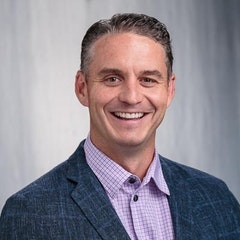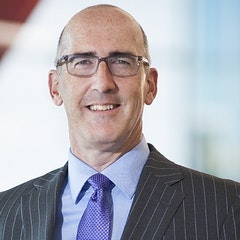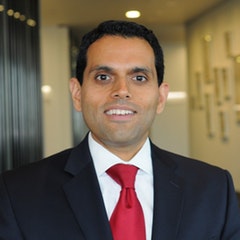This article is part of Carrier Management’s series on the Future of Insurance.
Rebecca Wheeling Purcell, CEO and Founder, Schedule It, reviews automation trends impacting the claims function of the insurance industry and the role of insurers generally, which she sees moving more toward loss prevention than claims payouts.
 Rebecca Wheeling Purcell, Schedule It
Rebecca Wheeling Purcell, Schedule ItQ: What major changes do you see on the horizon for the property/casualty insurance industry in the next 10 years?
Purcell (Schedule It): In the near term, small and midsize insurance carriers will emphasize customer experience across all technology initiatives and product development efforts so as not to lose customers to larger carriers with more geographic reach and bigger marketing budgets. As part of the positive customer experience push, automated communications to policyholders will become standard for all insurance carriers instead of only the top-tier players. Additionally, policyholder and claimant participation in the claim process will continue to increase, with smart carriers offering premium discounts based on participation.
Technology will also play a significant role in the near term with advances such as IoT devices decreasing water damage claims, for example, and helping carriers move toward mitigation of more risk.
Going forward, automation will invade the insurance industry, with bots taking over many customer service functions, handling simple underwriting inspections and empowering more self-service claims.
Risks insured by insurance carriers will be drastically different in the next decade. Carriers are already beginning to ask what happens when driverless cars prevent accidents and smart homes notify policyholders or service providers about potential problems before they happen. It’s a move toward proactive prevention as a service instead of the traditional model in which carriers provide products that prescribe action after a loss.
In 20-25 years or more, this time in history will be looked upon as even more exciting and tumultuous than the first Industrial Revolution. Together, we are changing the world.
Read more Future Insights by person
 Mike Albert, Co-Founder, Ask Kodiak
Mike Albert, Co-Founder, Ask Kodiak Tim Attia, CEO and Co-Founder, Slice Labs, Inc.
Tim Attia, CEO and Co-Founder, Slice Labs, Inc. Arun Balakrishnan, CEO, Xceedance
Arun Balakrishnan, CEO, Xceedance Ilya Bodner, CEO, Bold Penguin
Ilya Bodner, CEO, Bold Penguin Bobby Bowden, Executive Vice President, Chief Distribution and Marketing Officer, Allied World
Bobby Bowden, Executive Vice President, Chief Distribution and Marketing Officer, Allied World Andy Breen, Senior Vice President, Digital, Argo Group
Andy Breen, Senior Vice President, Digital, Argo Group Adam Cassady, CEO, Tyche Risk
Adam Cassady, CEO, Tyche Risk Chris Cheatham, CEO, RiskGenius
Chris Cheatham, CEO, RiskGenius Trent Cooksley, Head of Open Innovation, Markel Corporation
Trent Cooksley, Head of Open Innovation, Markel Corporation Mike Foley, CEO, Zurich North America
Mike Foley, CEO, Zurich North America Guy Goldstein, Co-Founder and CEO, Next Insurance
Guy Goldstein, Co-Founder and CEO, Next Insurance Mike Greene, CEO & Co-Founder, Hi Marley
Mike Greene, CEO & Co-Founder, Hi Marley Brian Hemesath, Managing Director, Global Insurance Accelerator
Brian Hemesath, Managing Director, Global Insurance Accelerator Russell Johnston, CEO, QBE North America
Russell Johnston, CEO, QBE North America Dr. Henna Karna, Managing Director and Chief Data Officer, XL Catlin
Dr. Henna Karna, Managing Director and Chief Data Officer, XL Catlin Tony Kuczinski, President and CEO of Munich Re, US
Tony Kuczinski, President and CEO of Munich Re, US Rashmi Melgiri, Co-Founder, CoverWallet
Rashmi Melgiri, Co-Founder, CoverWallet David W. Miles, Co-Founder and Managing Partner, ManchesterStory Group
David W. Miles, Co-Founder and Managing Partner, ManchesterStory Group Pranav Pasricha, CEO, Intellect SEEC
Pranav Pasricha, CEO, Intellect SEEC Mike Pritula, President, RMS
Mike Pritula, President, RMS Kathleen Reardon, CEO, Hamilton Re
Kathleen Reardon, CEO, Hamilton Re Jeff Richardson, Senior Vice President, OneBeacon Insurance Group
Jeff Richardson, Senior Vice President, OneBeacon Insurance Group Vikram Sidhu, Partner, Clyde & Co
Vikram Sidhu, Partner, Clyde & Co Christopher Swift, CEO, The Hartford
Christopher Swift, CEO, The Hartford Rebecca Wheeling Purcell, Schedule It
Rebecca Wheeling Purcell, Schedule It Keith Wolfe, President US P/C—Regional and National, Swiss Re
Keith Wolfe, President US P/C—Regional and National, Swiss Re


Get the responses of all 26 leaders neatly packaged in single PDF download. More than 43 pages of content.





















 AI Got Beat by Traditional Models in Forecasting NYC’s Blizzard
AI Got Beat by Traditional Models in Forecasting NYC’s Blizzard  From Skill to System: The Next Chapter in Insurance Claims Negotiation
From Skill to System: The Next Chapter in Insurance Claims Negotiation  New Texas Law Requires Insurers Provide Reason for Declining or Canceling Policies
New Texas Law Requires Insurers Provide Reason for Declining or Canceling Policies  Machine Learning for Mutuals: What’s Working, What’s Not, and What’s Next
Machine Learning for Mutuals: What’s Working, What’s Not, and What’s Next 






